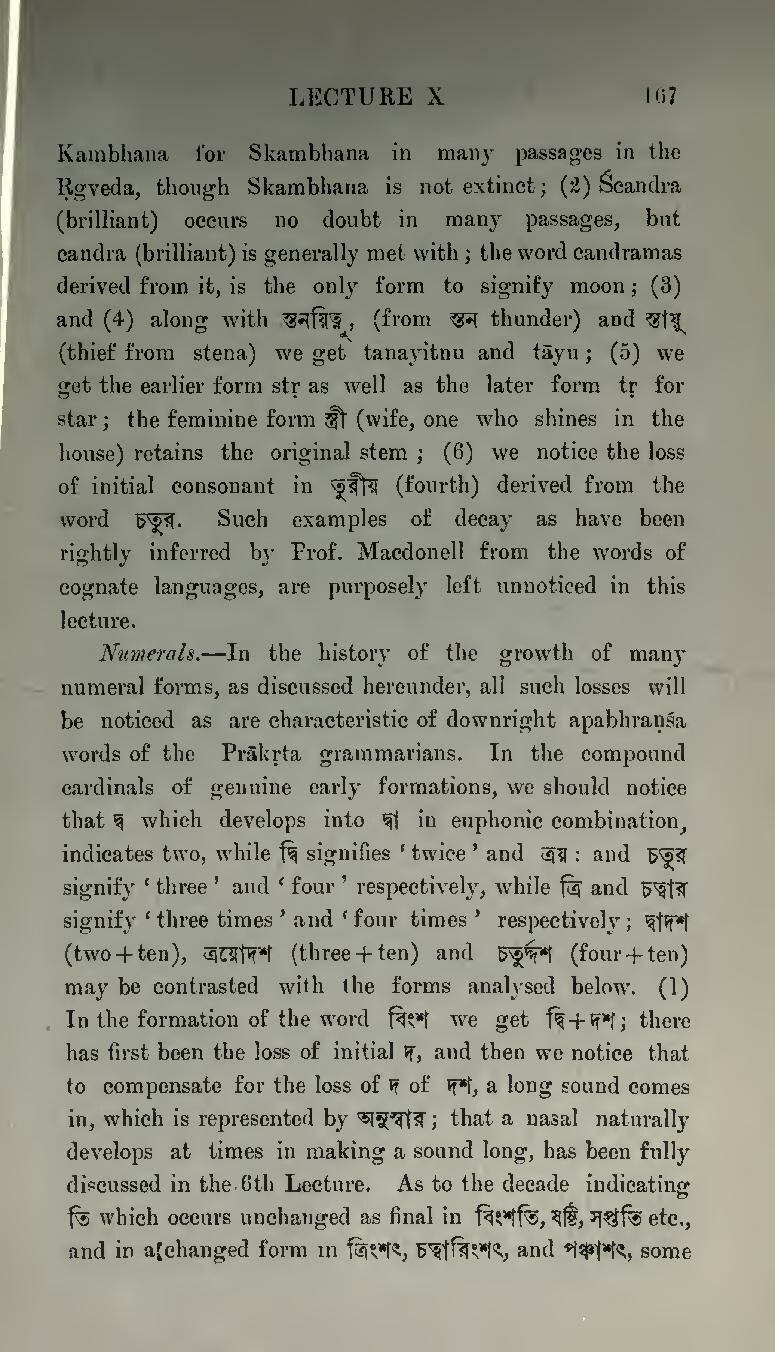Kambhana for Skambhana in many passages in the Ṛgveda, though Skambhana is not extinct; (2) Ścandra (brilliant) occurs no doubt in many passages, but candra (brilliant) is generally met with; the word candramas derived from it, is the only form to signify moon; (3) and (4) along with স্তনয়িত্নু, (from স্তন thunder) and স্তায়ু (thief from stena) we get tanayitnu and tāyu; (5) we get the earlier form stṛ as well as the later form tṛ for star; the feminine form স্ত্রী (wife, one who shines in the house) retains the original stem; (6) we notice the loss of initial consonant in তুরীয় (fourth) derived from the word চতুর. Such examples of decay as have been rightly inferred by Prof. Macdonell from the words of cognate languages, are purposely left unnoticed in this lecture.
Numerals.—In the history of the growth of many numeral forms, as discussed hereunder, all such losses will be noticed as are characteristic of downright apabhraṇśa words of the Prākṛta grammarians. In the compound cardinals of genuine early formations, we should notice that দ্ব which develops into দ্বা in euphonic combination, indicates two, while দ্বি signifies 'twice' and ত্রয়ঃ and চতুর signify 'three' and 'four' respectively, while ত্রি and চত্বার signify 'three times' and 'four times' respectively; দ্বাদশ (two + ten), ত্রয়োদশ (three + ten) and চতুর্দ্দশ (four + ten) may be contrasted with the forms analysed below. (1) In the formation of the word বিংশ we get দ্বি + দশ; there has first been the loss of initial দ, and then we notice that to compensate for the loss of দ of দশ, a long sound comes in, which is represented by অনুসার; that a nasal naturally develops at times in making a sound long, has been fully discussed in the 6th Lecture. As to the decade indicating তি which occurs unchanged as final in বিংশতি, ষষ্ঠি, সপ্ততি etc., and in a changed form in ত্রিংশৎ, চত্বারিংশৎ, and পঞ্চাশৎ, some
